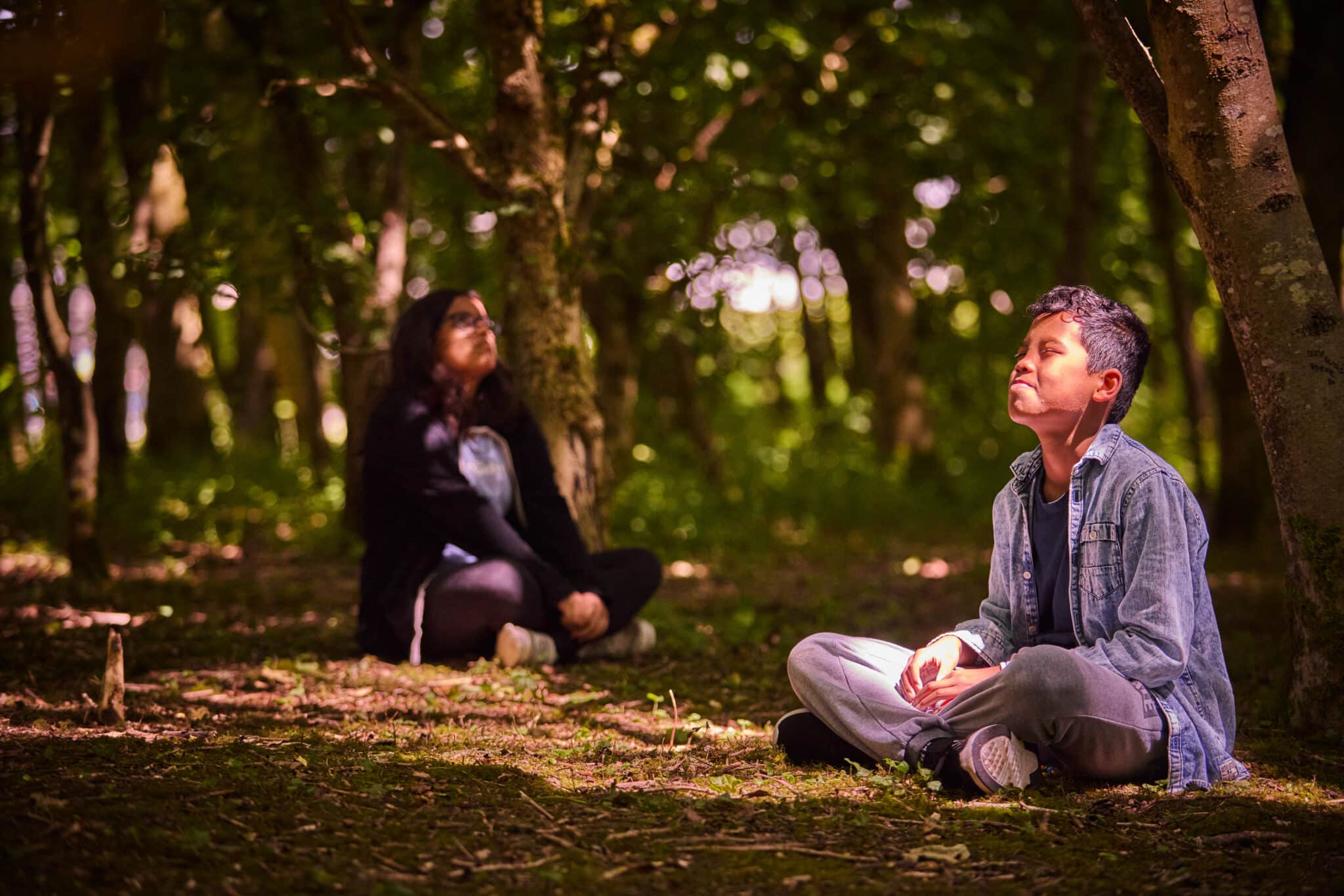Mindfulness is increasingly important in today’s fast-paced and demanding world. As students navigate academic pressures, social challenges, and constant exposure to information, practising mindfulness can provide invaluable tools for managing stress, improving focus, and enhancing overall wellbeing. But what exactly is mindfulness, and how can it benefit students?
What is Mindfulness?

Mindfulness is the practice of paying attention to the present moment without judgement. It involves observing your thoughts, feelings, and sensations without getting carried away by them.
An example of mindfulness could be a student in a loud classroom, who is overwhelmed by worries and distractions, and takes a mindful pause. Closing their eyes, they breathe deeply, noticing the sounds around them and acknowledging their anxieties without judgement.This brief moment of mindfulness brings calm and focus, allowing them to re-engage with the lesson with renewed clarity and ease. This simple act empowers the student to manage stress and navigate the school day with greater presence and resilience.
Why is Mindfulness important for students?
Research on the “Effects of Mindfulness on Psychological Health” has shown that mindfulness practices can have a profound impact on students’ lives, both academically and personally. Some of the benefits of mindfulness for students are:
Stress Reduction: Students face numerous stressors, from exams and deadlines to social pressures and future uncertainties. Mindfulness provides tools to manage stress by helping students recognise and respond to stressful thoughts and emotions in a healthy way. By learning to observe their thoughts and feelings without judgement, students
can develop a sense of calm and resilience in the face of challenges. Mindfulness paired with outdoor activities can help students deal with stress in a healthy way.
Improved Focus and Concentration: In a world filled with distractions, maintaining focus can be a major struggle for students. Mindfulness helps train their attention, allowing students to concentrate better in class, while studying, and during exams. By learning to anchor their attention to the present moment, students can minimise distractions and improve their overall academic performance.
Enhanced Emotional Regulation: Adolescence and young adulthood are periods of significant emotional development. Mindfulness can help students understand and manage their emotions more effectively. By becoming aware of their emotional states, students can learn to respond to challenging situations with greater composure and avoid impulsive reactions.
Improved Sleep: Many students struggle with sleep due to stress, anxiety, and racing thoughts. Mindfulness practices, such as meditation and deep breathing exercises, can help calm their minds and promote restful sleep.
Boosting Creativity: By encouraging a non-judgmental observation of thoughts and ideas, mindfulness can improve creativity and enable students to approach problem-solving with a fresh perspective.
Bringing Mindfulness into the Classroom and Beyond
The beauty of mindfulness is its accessibility. There are various ways to introduce mindfulness to students, making it an adaptable practice for all ages and learning styles. Simple breathing exercises can be easily incorporated into the classroom or practised at home. Guide students to focus on the feeling of their breath entering and leaving their body, gently bringing their attention back to the breath whenever their mind wanders.

Our PGL THRIVE! Programme is all about boosting students’ health and wellbeing through meaningful outdoor experiences. By disconnecting from devices and engaging in activities like our “Wellness Wander” and personal growth games, students return rejuvenated and better equipped to thrive both in and out of the classroom.
Book Mindful School Trips with PGL!
PGL Secondary School trips provide unique opportunities for students to engage in activities that naturally promote mindfulness.
Outdoor Activities: Our THRIVE! programme promotes mindfulness and helps to reduce stress by getting students to engage in outdoor adventures combined with reflective activities.By encouraging students to be present and connect with nature, THRIVE! promotes a sense of calm and resilience that supports their overall wellbeing!
Teamwork and Collaboration: The programme also encourages team-building activities and requires students to communicate effectively, listen attentively, and work together towards a common goal. These experiences can enhance social skills, empathy, and cooperation, all of which are related to mindfulness!
Overcoming Challenges: PGL adventure activities also involve facing challenges and getting students to step outside of their comfort zones. This can help students develop resilience, self-confidence, and a growth mindset, which are essential for navigating life’s challenges with greater ease and mindfulness.
If you would like to find out more about how our trips can help students develop mindfulness, contact us today!



